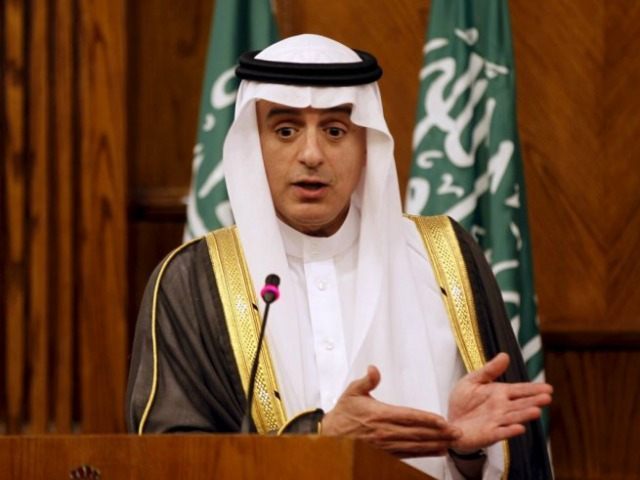Sunni Saudi Arabia described the Shiite Islamic Republic of Iran as the “single main sponsor of terrorism in the world” after refusing its invitation for dialogue.
The comments on Sunday from Saudi Arabia’s Foreign Minister Adel al-Jubeir came less than a week after the Wall Street Journal (WSJ) reported that U.S. President Donald Trump’s administration is considering forming an anti-Iran military coalition with several Arab allies, including Saudi Arabia, as well as Israel.
On Sunday, Saudi Arabia’s Foreign Minister Adel al-Jubeir labeled Iran a sponsor of terrorism at the Munich Security Conference, adding that the Shiite powerhouse is a destabilizing force in the Middle East, echoing a letter sent to the United Nations late last year by 11 Arab countries in the Middle East and North Africa.
“Iran remains the single main sponsor of terrorism in the world. It’s determined to upend the order in Middle East… [and] until and unless Iran changes its behavior it would be very difficult to deal with a country like this,” declared the Saudi foreign minister.
In the letter sent to the U.N. — authored by representatives of the United Arab Emirates (UAE) and signed by Saudi Arabia, Egypt, Jordan, Sudan, Morocco, Bahrain, Kuwait, Oman, Qatar, and Yemen — the Arab countries determined Iran to be a state sponsor of “terrorism” that is “funding and arming militias that destabilize our region.”
The U.S. has officially designated the Islamic Republic as the world’s “leading state sponsor of terrorism.”
As it stands now, the anti-Iran coalition would bring together Saudi Arabia, the UAE, Egypt, Jordan, and their unlikely bedfellow Israel.
Other Arab countries may also join the alliance, which is expected to “share intelligence with Israel to help counter their mutual foe, Iran,” notes the Journal.
Avowed enemies Saudi Arabia and Israel have deemed Iran their number one enemy. The Saudis had long reserved that label for Israel.
“For the Arab countries involved, the alliance would have a NATO-style mutual-defense component under which an attack on one member would be treated as an attack on all, though details are still being worked out, the officials said,” reported WSJ, referring to the U.S.-backed anti-Iran coalition.
“The U.S. would offer military and intelligence support to the alliance, beyond the kind of limited backing it has been providing to a Saudi-led coalition fighting Iran-backed Houthi rebels in Yemen, the officials said. But neither the U.S. nor Israel would be part of the mutual-defense pact,” it adds.

COMMENTS
Please let us know if you're having issues with commenting.